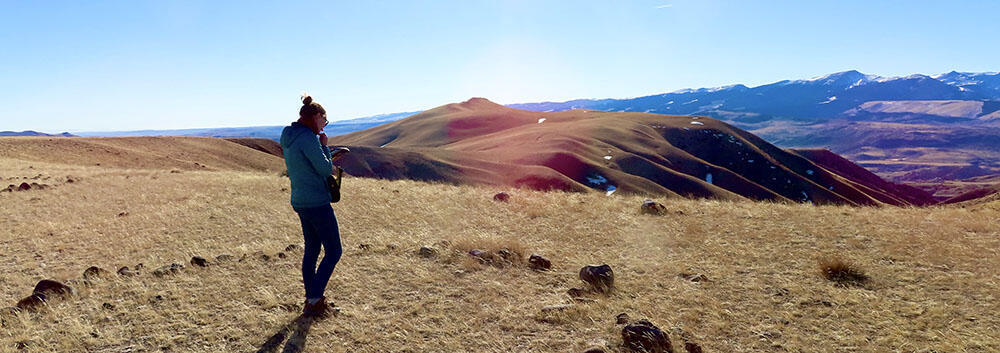Date:
Location:

With multispecies ethnography, the ontological turn, and Indigenous knowledge combined with ecological and ethological empirical findings on species interconnectivity and sociality, this project questions the dichotomous categories “wild” or “domesticated” and “hunting” or “herding” that are typically employed in archaeological investigations of nonhuman animal domestication. Through a case study on elk (or wapiti; Cervus elephus/canadensis nelsoni) in the North American Rocky Mountains, this study proposes to address human-nonhuman animal relationships that fall in between these common dichotomies. Free-ranging elk inhabit a more liminal space than the “wild- domestic” framework allows, even though they are by no measure “domesticated.” The management of the “wild” species may provide a unique picture into domestication processes. By comparing elk-human relationships across three generalized locations, this study tests the hypothesis that reciprocal habituation, hypothesized to be a stage in or type of domestication, affects ungulate-human relationships. This study employs ethographic methods to observe and measure elk behavior and ethnographic methods to assess human practices. If there is evidence that reciprocal habituation is lowest when the elk-human relationship is distant (high altitude forests of the Wind River Range) and highest at its most intimate (elk ranch), this challenges the simple “wild-domestic” dichotomy traditionally employed in domestication.
Dalyn Grindle's research interests center on human-nonhuman animal interactions and relationships. She focuses on the behavior states of nonhuman animals in relation to human hunting/herding/management practices as an alternative approach to domestication studies. Using multispecies ethnography, the ontological turn, and Indigenous knowledge, combined with empirical findings in ecology and ethology on species interconnectivity and sociality, her approach questions dichotomous categories in nonhuman animal domestication studies. She is interested in what this approach can bring to archaeological interpretations of the past, such as landscape-scale animal management. She is conducting her dissertation research on elk (Cervus elephus/canadensis nelsoni) and elk management in the Rocky Mountain West, western Wyoming and eastern Idaho in particular. Her methods are etho-ethno-archaeological. By observing and participating in elk-human interactions and relationships across different geographical and cultural scenarios, she hopes to interrogate assumptions in archaeological domestication models. She identifies as a mixed-Alutiiq woman who is originally from Pavillion, Wyoming, and grew up ranching and hunting. She received her undergraduate degree from the University of Wyoming in 2016 where she was trained as a zooarchaeologist and in formal ethographic methods. She was an NSF REU intern at the Smithsonian's National Museum of Natural Sciences while as an undergraduate in 2016 and received an NSF GRFP in 2017 to attend Harvard University. She completed her general examinations at HU in 2019 and presented her prospectus in 2020. Her primary dissertation advisor is Richard H. Meadow.
To Register, Click Here